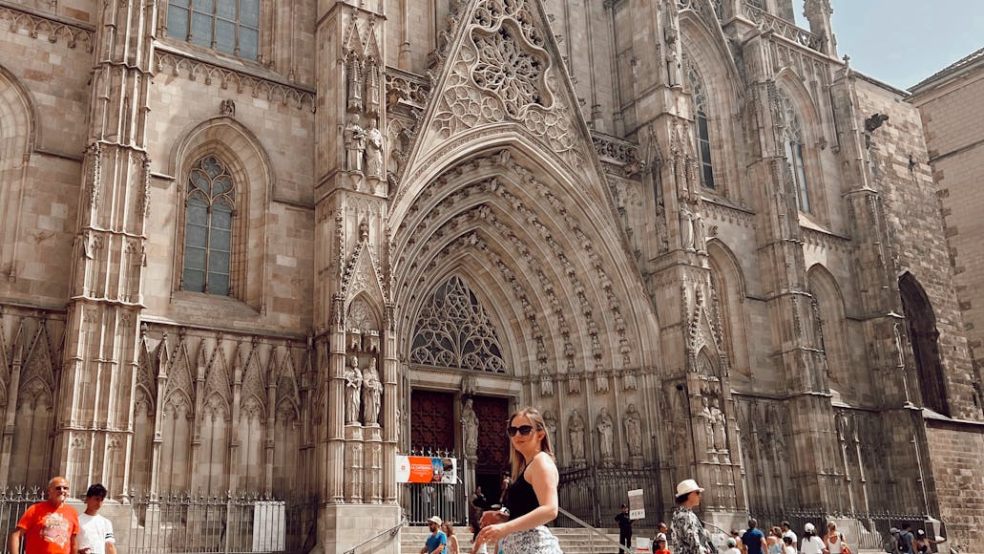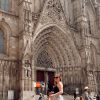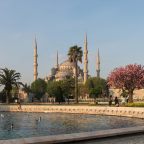
Immersive Learning: How Travel to Barcelona Deepens Student Knowledge
Classroom learning lays the foundation for academic success, but immersive experiences often bring lessons to life in ways that textbooks cannot. Travel, particularly to culturally and historically rich destinations like Barcelona, offers students the opportunity to deepen their understanding of their studies while developing essential life skills.
From exploring architectural masterpieces to experiencing the city’s vibrant culture, student trips to Barcelona provide unique, hands-on learning experiences that enhance knowledge, inspire curiosity, and broaden horizons. In this blog, we’ll explore how travel to Barcelona can transform education for students of all ages.
Experiencing History and Architecture First-Hand
Barcelona is a living museum of history and architecture, making it an ideal destination for students studying art, design, or history. The city is home to iconic landmarks like Antoni Gaudí’s Sagrada Família and Park Güell, where students can see how innovative architecture combines with nature to create breathtaking spaces.
Walking through the Gothic Quarter immerses students in the city’s medieval past, with its narrow streets, ancient buildings, and remnants of Roman walls. This hands-on exploration helps students understand historical periods and architectural styles in a way that no classroom lecture can replicate.
Enhancing Cultural Awareness
Barcelona’s rich cultural heritage is deeply rooted in its Catalonian identity. By visiting local markets like La Boqueria or attending traditional festivals such as La Mercè, students gain insight into the customs, traditions, and daily lives of the local people.
This exposure fosters cultural awareness, encouraging students to appreciate diversity and understand the importance of cultural identity. These experiences not only enhance their studies but also build empathy and respect for other ways of life—an essential skill in today’s globalised world.
Bringing Art and Design Studies to Life
For art and design students, Barcelona is a treasure trove of inspiration. The city is home to world-class museums like the Museu Picasso, where students can trace Picasso’s artistic evolution, and the Joan Miró Foundation, which showcases the works of another influential 20th-century artist.
The city itself serves as a canvas, with colourful mosaics, street art, and striking modernist designs at every turn. Experiencing these works in person allows students to connect with the creative process, understand artistic movements, and find inspiration for their own projects.
Developing Language Skills
For students learning Spanish or Catalan, a trip to Barcelona offers invaluable opportunities to practise their language skills in real-life situations. Engaging with locals at markets, cafes, or cultural events allows students to build confidence in their speaking abilities and deepen their understanding of the language.
This immersive experience helps students go beyond textbook learning, exposing them to regional accents, idiomatic expressions, and cultural nuances that enrich their linguistic competence.
Studying Geography and Urban Planning
Barcelona’s unique geography and urban design make it an excellent case study for students of geography and urban planning. The city is bordered by the Mediterranean Sea and the Collserola mountain range, providing diverse landscapes to explore.
From the meticulously planned grid system of the Eixample district to the waterfront development of Port Olímpic, students can study how Barcelona has adapted its urban design to balance functionality, sustainability, and aesthetics. These insights can be directly applied to coursework and projects in their fields of study.
Inspiring Creativity and Innovation
Barcelona is a hub of creativity and innovation, making it a dynamic destination for students in business, technology, or entrepreneurship. Visits to tech hubs or creative workshops allow students to learn from industry leaders and gain insights into how the city fosters innovation.
This exposure encourages students to think critically and develop entrepreneurial mindsets, equipping them with the tools to tackle real-world challenges creatively and effectively.
Building Confidence and Independence
Travelling to a foreign city like Barcelona pushes students out of their comfort zones, helping them develop confidence and independence. From navigating public transport to ordering food in a new language, these everyday tasks teach valuable problem-solving skills and adaptability.
Group trips also encourage collaboration, teamwork, and leadership, as students work together to plan activities, manage schedules, and support one another. These skills are crucial for personal and professional growth.
Exploring Sustainability and Urban Innovation
Barcelona is a leading city in sustainable urban development, making it a great destination for students studying environmental science or urban sustainability. Initiatives such as the city’s superblocks—a revolutionary concept in urban mobility—demonstrate how cities can prioritise pedestrian-friendly spaces, reduce pollution, and create greener neighbourhoods.
By exploring these initiatives, students gain practical insights into sustainability challenges and solutions, inspiring them to think critically about their own communities and future careers.
Creating Lifelong Memories and Connections
One of the most rewarding aspects of student trips to Barcelona is the memories and connections they create. From bonding with classmates over tapas to marvelling at the city’s iconic landmarks, these shared experiences strengthen friendships and create stories that last a lifetime.
For many students, these trips also ignite a passion for travel and learning, encouraging them to seek out further opportunities for exploration and growth.
Tips for Planning an Educational Trip to Barcelona
- Tailor the Itinerary to the Curriculum: Work with teachers and trip organisers to ensure the itinerary aligns with the students’ studies, whether it’s history, art, or business.
- Balance Learning and Leisure: Include a mix of educational activities, such as museum visits or guided tours, alongside free time for students to explore the city at their own pace.
- Engage Local Experts: Hire knowledgeable guides who can provide deeper insights into the city’s history, culture, and innovations.
- Emphasise Safety and Supervision: Ensure students are well-supervised and briefed on safety protocols, including staying in groups and knowing emergency contact information.
- Encourage Reflection: Provide opportunities for students to reflect on their experiences, such as group discussions or journaling, to consolidate their learning.
Conclusion
Travel to Barcelona offers an unparalleled opportunity for immersive learning, allowing students to deepen their knowledge in meaningful and engaging ways. By exploring the city’s history, culture, and innovation first-hand, students gain insights that extend far beyond the classroom, enhancing their academic studies while building confidence, independence, and a global perspective.
For educators and organisers, trips like student trips to Barcelona are an investment in experiential education, inspiring students to connect with their studies, broaden their horizons, and develop skills that will serve them for a lifetime. A journey to this vibrant city is more than just a trip—it’s a gateway to discovery, growth, and endless possibilities.














